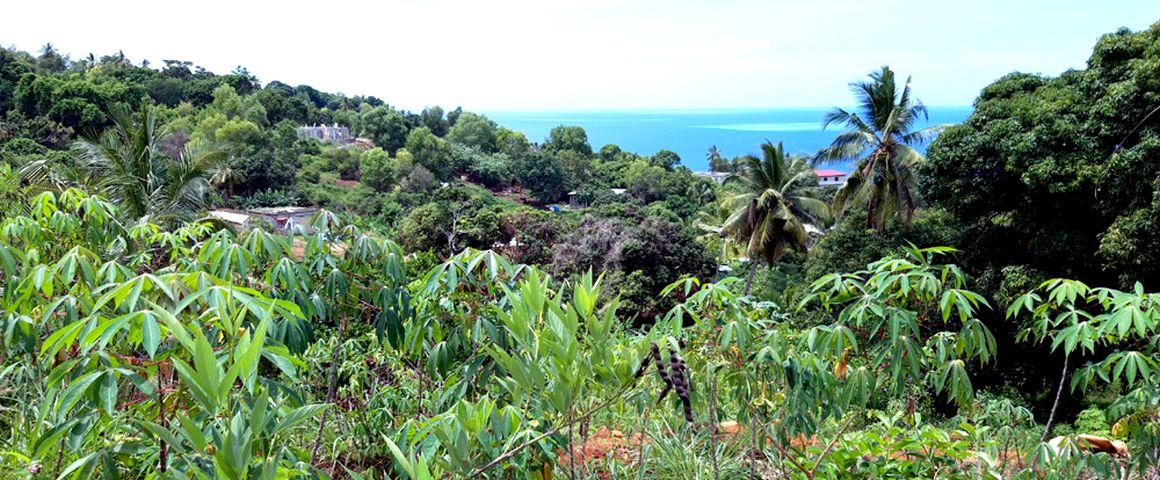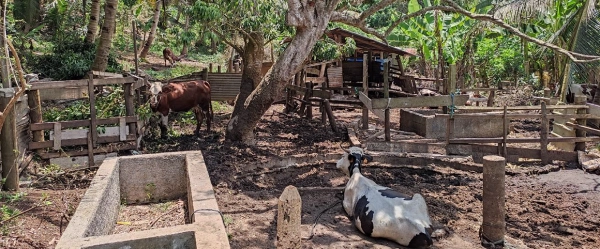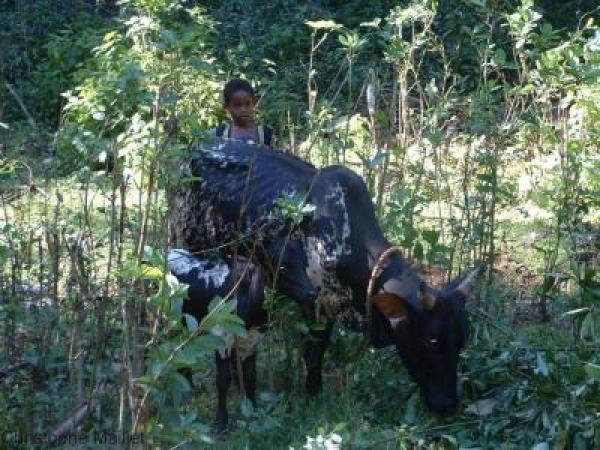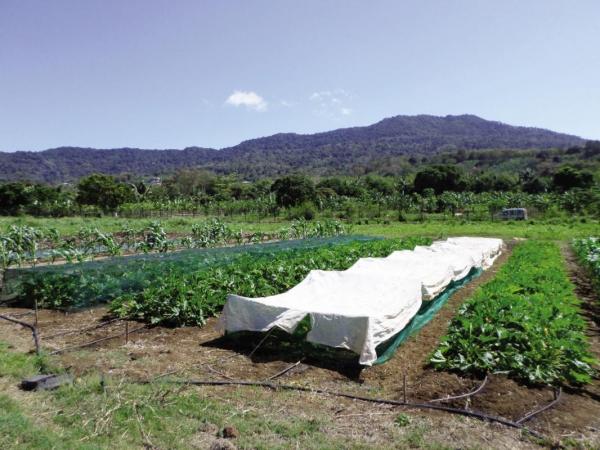- Home
- Worldwide
- Our regional offices
- Réunion, Mayotte and Indian Ocean
- Mayotte
Mayotte

© P. Ryckewaert, Mayotte
Under the programme for 2015-2021, the priority lines of research are animal health, with the SESAM animal epidemiological surveillance system, livestock farming system and value chain characterization and improvement, and the development of crop value chains in Mayotte.
SESAM, a health surveillance and warning network
The SESAM network, founded in 2009 by CIRAD, the Food Service (SALIM) at the Direction de l’Agriculture de l’Alimentation et de la Forêt (DAAF) and the Mayotte Livestock Farmers' Association (ADEM), regularly collects and processes epidemiological information on ruminant herd health in the archipelago. It has been headed 2014 by the Groupement de Défense Sanitaire (GDS) in Mayotte.
Characterizing and improving livestock production chains in Mayotte
How, in the long term, can we improve herd zootechnical performance (health, reproduction, growth performance, milk production) while maintaining farmers' incomes in spite of ever greater environmental constraints, such as health pressure, climate stress and seasonal variations in the products available and in fodder quality? This is the main question livestock professionals in Mayotte are asking.
Local ruminant races play a particularly important role and should have a major place in any plans to develop cattle rearing in the archipelago, particularly in small-scale family farming-type production systems. They are a reservoir of genes for adapting to unfavourable environmental conditions, notably as a result of climate change. However, little is yet known about the adaptation and production capacity of these races and the potential for technical and economic progress of local farms. That knowledge is vital for determining how to improve farm productivity sustainably.
To supplement the available knowledge, several projects have been rolled out as part of the RITA-Mayotte agricultural innovation and transfer network, including PAZEM (programme to provide farmers in Mayotte with zootechnical support) from 2009 to 2014 (Conseil Général, ODEADOM, State) and DEFI ANIMAL since 2015 (EAFRD). Those projects have all been conducted in close collaboration between CoopADEM (Mayotte Livestock Farmers' Association), CAPAM (Mayotte Chamber of Agriculture, Fisheries and Aquaculture) and CIRAD.
Developing crop value chains in Mayotte
CIRAD's projects in this field aim to structure and develop worthwhile crop value chains sustainably, by intervening at various stages in the production, processing and marketing of the chosen crop products.
New agroecological production methods are being developed. They fit into a triple vision of combining agronomic, environmental and economic performance. The aims are to:
- Reduce pesticide use, notably by means of physical control using insect netting against cucurbit and tomato flies, or of biological control using local biodiversity. The results are the fruit of collaboration between CIRAD, the Coconi agricultural college, the central farmers' cooperative (COOPAC) and the Chamber of Agriculture.
- Relaunching production of healthy citrus plants following the arrival of citrus greening: a plan to relaunch healthy citrus plant production, with a potential of around 12 000 plants/year, was launched in 2015 under the INNOVEG project. Two 160-m² greenhouses (mother trees and amplification) were built in 2018 by the Departmental Council (with EAFRD and Departmental Council funding) and are managed by Departmental Council technical services. CIRAD (INNOVEG project leader) is supporting the plan by leading the "Citrus" multi-player working group (Mayotte Departmental Council, DAAF, private nurseries, agricultural college, CAPAM, CIRAD).
- Producing technico-economic references to back the deployment of public support for crop value chains (technical advice notes, guides, etc). In particular, work has been done with SISE/DAAF and DRTM/Departmental Council to characterize and measure the performances of "Mahorais gardens", which are complex agro-systems.



























